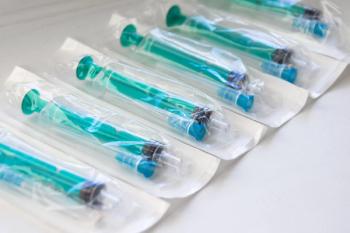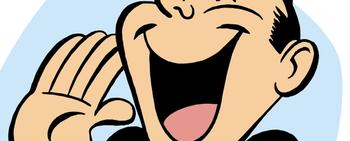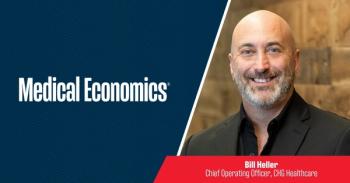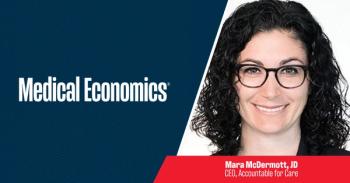
The Internet made me realize what a noble profession we practice
Dr. Madduri tells how he was able to help the families of two very ill people in his native India--people he had never met--by offering advice and support via e-mail
A Medical Economics Web Exclusive
The Internet helped me realize what a noble profession we practice
By Sivaprasad D. Madduri, MD
Urologist/Poplar Bluff, MO
Its 6 oclock on a cold and blustery January morning. As usual, I am checking my e-mail:
Dear Dr. Madduri:
Every one in our house, especially my father, was so happy to receive medical advice from a US doctor, which none of us expected. We understand and appreciate the commitment, sincerity, and dedication you have to your profession.
The message made me feel proud and gave me a sense of gratification I had not experienced in a long time.
It all started when I visited my 82-year-old father and the rest of the "gang" in India. At a friends house, I met the health and science editor of a nationally syndicated newspaper. I told him Id written a few articles on health topics for our local paper. He was interested and asked me to send some of them to him via e-mail.
Six months later, as part of Prostate Cancer Awareness Week, I wrote an article for the local paper and e-mailed a copy to the editor in India. He thanked me and said hed be publishing it in his paper in a couple of weeks.
A couple of months later, I was surprised to see 10 e-mail messages from people Id never heard of. They were all people from India who had read my article on prostate cancer. Some sent notes of appreciation, while others had questions about prostate problems. One was from a university professor who noted that exposure to mercury can cause prostate cancer, something I hadnt known before.
Two of the e-mails were particularly memorable. One was from Sam (not his real name), a 42-year-old electrical engineer who works for the government. His 65-year-old father was suffering the effects of prostate enlargementdifficulty urinating, nighttime trips to the bathroom, etc. His dad was taking a medication that was not helping; I suggested another that was available in India and gave a detailed account of how it works and what drug interactions to watch for.
Two weeks later, Sam sent an e-mail thanking me and saying that his father was responding well to the new medication. Three months later, however, he wrote again to tell me that his fathers PSA was 11.4. A urologist had advised a needle biopsy of the prostate, but Sams father was resisting. His argument was simple: If he had cancer, he did not want to know about it. If God wanted him to die of prostate cancer, so be it. Sam wanted my opinion because he thought his father would listen to me.
I knew I had a tough task of me, and I responded promptly. I described the importance of a biopsy and explained that the best time to diagnose prostate cancer is before it spreads outside the organbefore it becomes incurable. I urged Sams father to have a biopsy and outlined the available treatment options.
Two months later, I had good news from Sam. His father had had the biopsy. It confirmed cancer and, after much discussion, he agreed to radical prostatectomy. The procedure was a success, the cancer was contained, and the prospects for long-term cure were excellent. I made a grateful bow to the Internet for helping to make a happy ending possible.
The second memorable e-mail was from Mani (also a pseudonym), a schoolteacher in the Indian state where I was born. Manis mother, who was in her late 60s, had been passing blood in her urine for three to six months. Her doctor, a generalist, had been treating her with antibiotics, but the bleeding persisted. Manis father had passed away some time ago, and the family could not afford a private hospital.
I told Mani there was a strong possibility of a tumor in the urinary tract. I advised her to take her mother to the university hospital, about 50 miles away. It is a government-owned facility, and the care is free. A friend of mine was still on the faculty and, though he was an ophthalmologist, I thought that he would be able to help her. I warned her not to waste time since the bleeding had been going on for so long.
I tried to contact my ophthalmologist friend, but couldnt reach him. I prayed that he would still be there to help Mani and her mother.
Two months later, I heard from Mani. Shed taken her mother to the university hospital, and my friend, thankfully, was there to help. She was admitted to the urology department, where the doctors discovered a tumor in her right kidney. They removed the kidney and, though the tumor was fairly large, the cancer was contained, and the urologist said that the prospects for long-term remission were very good.
These two e-mail encounters gave me a sense of satisfaction that has become increasingly elusive during my 25 years of practice in the United States. The changes that have taken place in our system of care have made it difficult if not impossible to practice medicine the way it should be. For fear of the medicolegal implications, I wouldnt have the courage to advise any patient in the United States how to handle his or her health care via the Internet.
Though my efforts for Sams father and Manis mother were minimal, requiring just a few hours of my time, they had an impact one someones life and helped out at a time of illness and family stress. These experiences represented the doctor-patient relationship in its purest form. Good health is the greatest gift one can have; I was happy to help people secure that gift. Without the Internet and the communications miracles it makes possible, I would not have been able to assist people I have never known, people who live halfway around the globe.
Note: Dr. Madduris e-mail address is
Sivaprasad Madduri. The Internet made me realize what a noble profession we practice.
Medical Economics
2001;6.
Newsletter
Stay informed and empowered with Medical Economics enewsletter, delivering expert insights, financial strategies, practice management tips and technology trends — tailored for today’s physicians.








